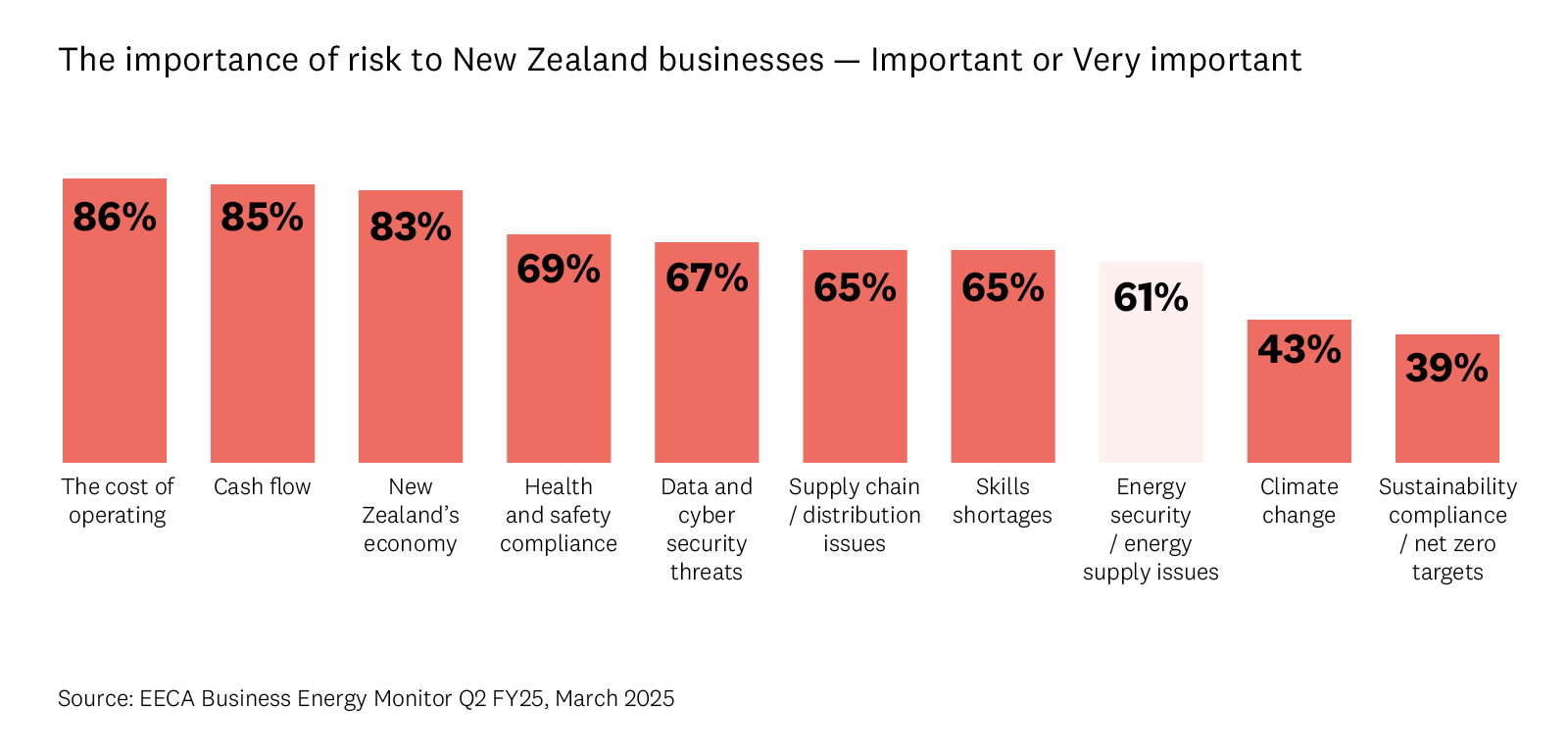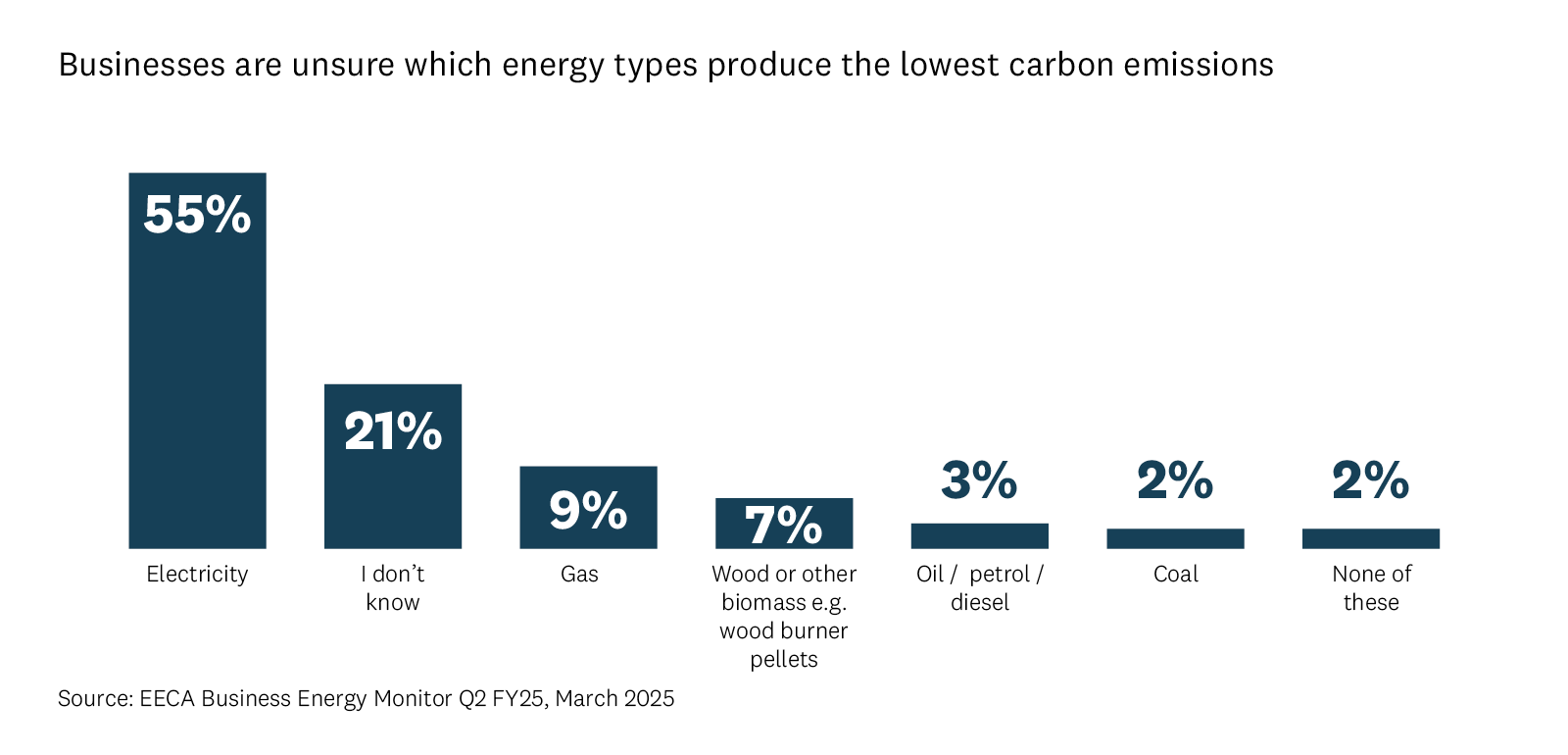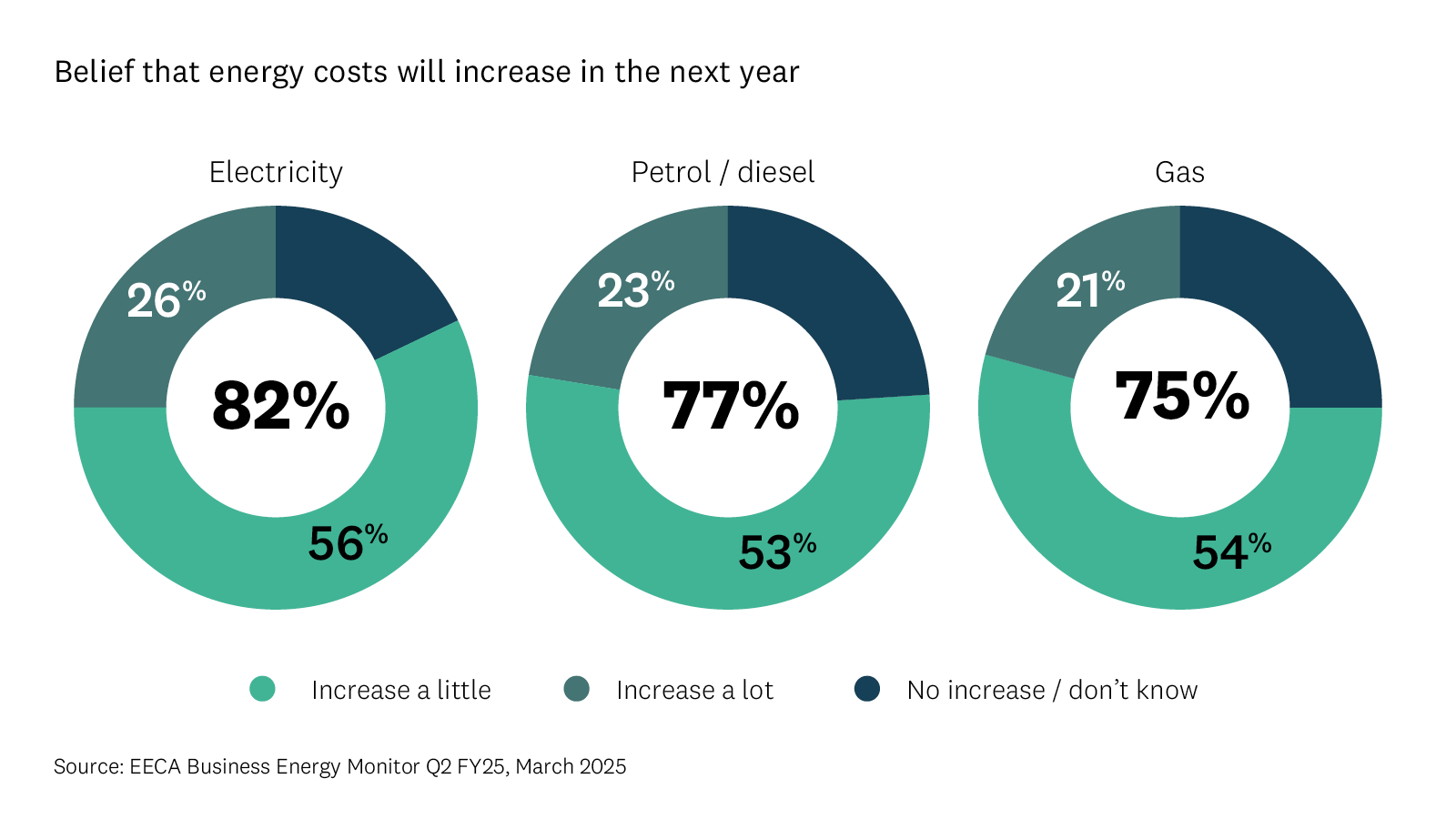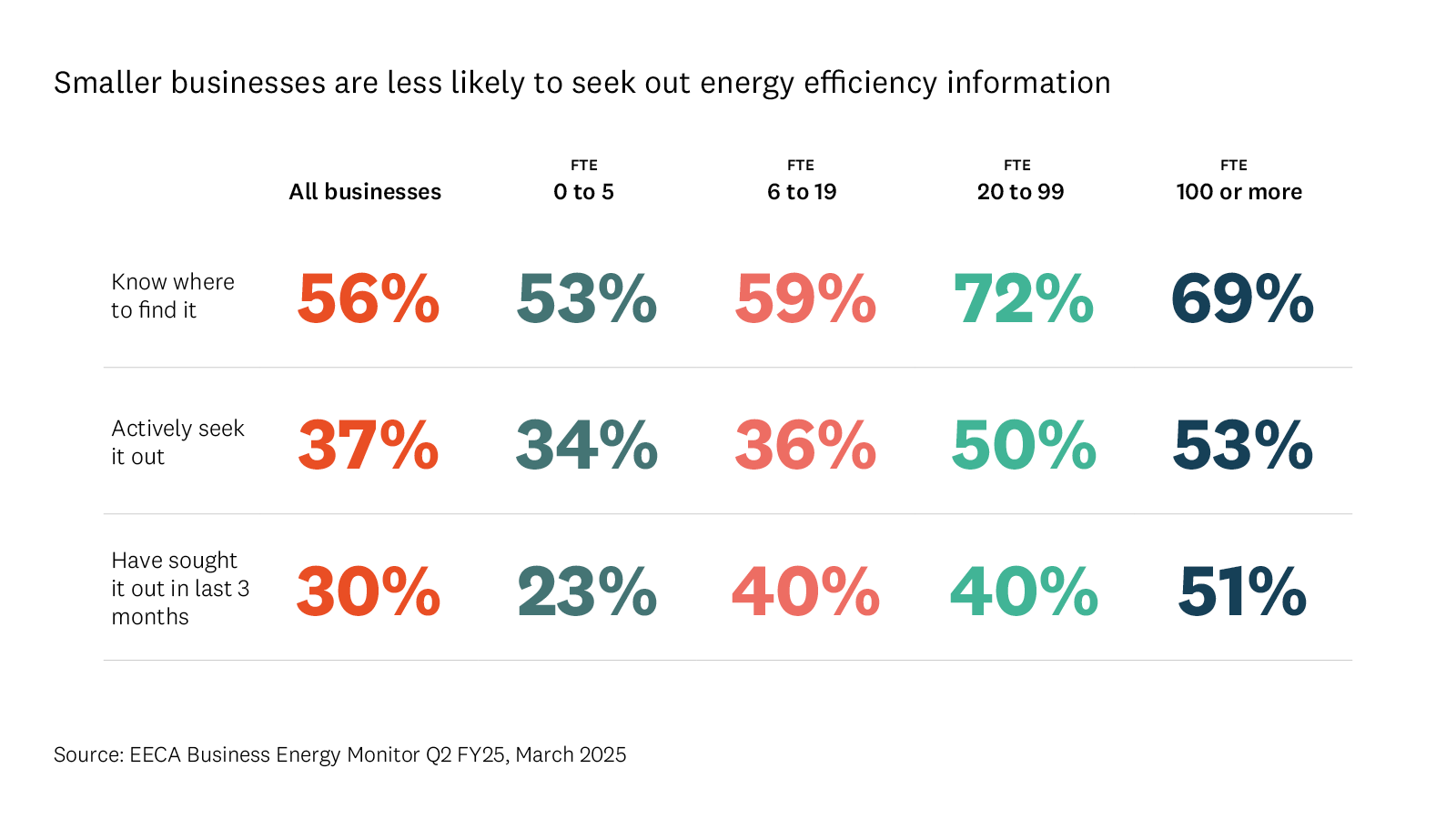The Business Energy Monitor captures data on how New Zealand Businesses understand and use energy, both as a snapshot and how this develops over time. This is the first edition of this tracking study, replacing the previous tracking programme from 2019 to 2023. Alongside broader behavioural and attitudinal trends, this on-going research allows EECA to give evidence to help shape its programmes and understand the impact of its interventions.
Overview
This is the first edition of our refreshed business monitor. Its purpose is to better understand New Zealand businesses’ relationship with energy.
Between 11 to 26 November 2024, EECA surveyed a representative sample of the New Zealand business market based on size (FTE), and industry. In total, 680 decision makers responsible for personnel, vehicle or energy decisions took part in this survey.
Key findings
This research did a deep dive into how well businesses understand, manage and conserve their energy use, as well as their acceptance and adoption of energy-efficient products and practices. It found that while energy is on the minds of businesses, they are more focused on costs – including in their decisions concerning energy.
Many businesses are improving energy efficiency by tracking usage and reducing waste, with larger and industrial firms leading the way. However, awareness of available actions and investment options remains low, and concerns about cost hinder progress. Despite this, businesses are eager for guidance.
Businesses’ finances and the economy are top of mind
Energy is on businesses’ minds, with 61% believing that energy security and supply is an important risk. Additionally, CEOs of some of the largest companies see energy as their top domestic concern. However, 86% of businesses see the cost of operating and 85% see cash flow as the most important risks.

There is a knowledge gap regarding what the lowest carbon-emitting energy is
While nearly half (49%) of businesses support shifting away from non-renewable energy sources, only just over half (55%) think that that electricity produces the lowest carbon emissions in New Zealand among energy types.

Businesses want to be more energy efficient and expect electricity costs to keep increasing
More than four in five (82%) businesses expect electricity prices to increase, which is higher than their expectations for increases in costs of petrol/diesel (77%) and gas (75%). Most businesses want to be as energy efficient as possible but there are barriers for them undertaking steps to do this.

Two thirds (65%) say it would not be easy to do the same tasks using less energy, and more than half (57%) believe it would be too expensive to make changes to how much energy their businesses use.
More than half of businesses know where to find information to improve efficiency, but most don’t look for it
Most businesses are keen to engage with energy efficiency advice and information when they come across it, however, smaller businesses are less likely to actively look for information.

This research suggests that the key barrier isn’t attitudinal but informational. Helping businesses understand the most impactful actions they can take, along with the cost benefits, will be essential to driving meaningful progress in energy efficiency.
